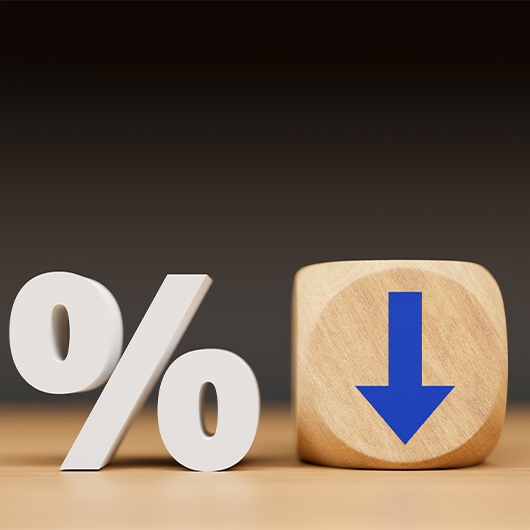How to Leverage Your Home Equity
How to Leverage Your Home Equity
One of the benefits of owning a home is that you may be able to leverage your stake in it — the part of it you own versus what you’re still paying off to the lender — as collateral to get cash in hand for home renovations, debt consolidation, large purchases or other financial needs. Used wisely, the equity you have built in your home can be a valuable financial tool.What is home equity?
Home equity is the value of your home beyond the amount you owe to own it outright — the difference between your home’s current market value and the outstanding balance of your mortgage and/or any other outstanding loans or liens. The amount of equity you have in your home keeps changing as you make mortgage payments and as real estate market values fluctuate. Learn how to calculate your home equity.
Ways to leverage the equity in your home
Lenders offer several options for accessing your home equity funds:
- Home equity loan: This fixed-interest loan gives you a one-time lump sum in the amount you choose, up to the limit established by the lender (often 75-85% of your home equity). A home equity loan may be a good choice when you have a large, one-time expense and want the security of fixed monthly payments.
- Home equity line of credit (HELOC): This open-ended, variable-rate loan enables you to borrow money up to your preset credit limit whenever you need it, without having to apply every time. A HELOC may make sense when you have revolving credit needs. Lenders usually offer multiple options for accessing your credit — online transfers, a credit card or checks, for example.
- Cash-out refinance: This mortgage refinancing option allows you to pay off your existing mortgage with a larger one (an amount higher than your existing mortgage balance) and pays you the difference in a lump sum. A cash-out refinance differs from a standard refinance, in which monthly payments are lowered but no cash is paid to the borrower.
With each of these options, you are responsible for making monthly payments as set forth in the terms of the loan or line of credit.
How you can use your home’s equity
Homeowners leverage their home equity for a variety of uses, ranging from home remodeling projects to paying for their kids’ education. As you evaluate whether a particular expense is worth diminishing your equity, you may want to consider the potential return on your investment of those funds.
Here are some common reasons homeowners tap into their home equity:
Home improvements
Keeping your home updated and in good condition can be important to its market value, as well as your quality of life. Homeowners often leverage their home equity to pay for major repairs and renovations.
Debt consolidation
Because home equity loans and HELOCs are secured by the equity in your home, they may enable you to borrow money at a lower interest rate than unsecured types of credit, such as credit cards and personal loans, carry. Paying off higher-interest debt with one of these lower-interest options may save you money.
Higher education
If you or your children are attending college, your home equity may be an option for funding higher-education expenses. As you consider this investment into your child’s, or your own, future, compare the costs of using home equity funds versus taking out federal or private student loans.
Large, unexpected expenses
If a medical emergency or other unexpected situation generates unanticipated expenses, you may want to consider leveraging your home equity rather than wiping out your savings. (In the case of medical expenses, you may want to check with the healthcare system to see if they offer a payment plan with fees that would be less than the interest on a home equity loan or HELOC.)
Refinancing
As mentioned above, a cash-out refinance enables you to access cash by refinancing your mortgage to a higher amount, provided you qualify for that amount. For example, if your home value is $350,000 and your current outstanding mortgage balance is $200,000, you may choose to take out a new $250,000 mortgage loan, pay off your $200,000 first mortgage and have access to $50,000 cash (minus any closing costs).
Ways to build home equity
Over the past year or two, many homeowners experienced a boost to their home equity as home values increased at a record pace nationwide. You don’t have to rely on the market to increase your equity, though; you can take actions to build it yourself:
- Make a larger down payment at the time you buy your home
- Make on-time monthly mortgage payments
- Make additional mortgage payments toward your principal
- Make home improvements that increase your home’s value
It’s important to note that when you use your home equity as collateral for a loan or line of credit, the lender places a lien on your home. Ensure you are ready to tap into your home’s equity and can responsibly manage the payments. Have questions about the process or want to learn more about using the equity in your home to secure a term loan or line of credit? Contact your local Dollar Bank loan expert today.
This article is for general information purposes only and is not intended to provide legal, tax, accounting or financial advice. Any reliance on the information herein is solely and exclusively at your own risk and you are urged to do your own independent research. To the extent information herein references an outside resource or Internet site, Dollar Bank is not responsible for information, products or services obtained from outside sources and Dollar Bank will not be liable for any damages that may result from your access to outside resources. As always, please consult your own counsel, accountant, or other advisor regarding your specific situation.
Posted: July 12, 2022




